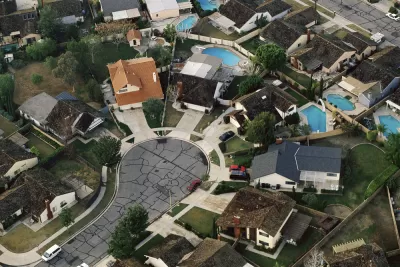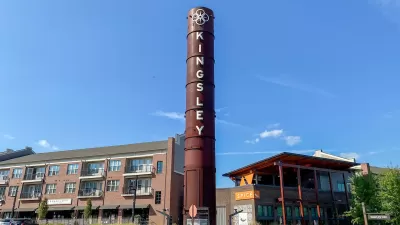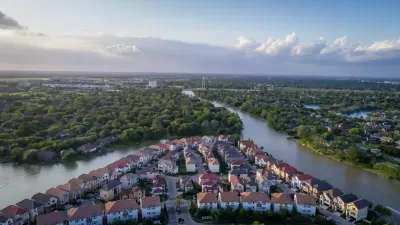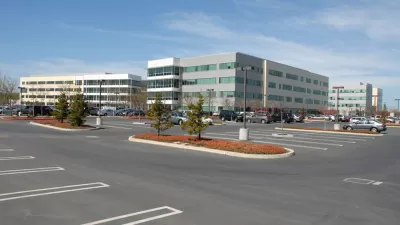Charles Marohn analyzes Lafayette, Louisiana for how well (or poorly) its districts measure up in terms of infrastructure investment versus tax revenues. The results are telling.

After a research effort to determine why the city of Lafayette can't "keep up" with its own maintenance, Charles Marohn gives us a telling visual. "When we finished, we had a three dimensional map showing what parts of the city generated more revenue than expense (in business terms, this would be called profit) and what parts of the city generated more expense than revenue (again, in business terms, this is considered a loss)."
The results back up Marohn's usual thesis: that wanton infrastructure investments in low-slung suburban areas will not pay for themselves. In the long term, they'll run up a deficit.
"There are some remarkable things to note right off the top. When we added up the replacement cost of all of the city's infrastructure -- an expense we would anticipate them cumulatively experiencing roughly once a generation -- it came to $32 billion. When we added up the entire tax base of the city, all of the private wealth sustained by that infrastructure, it came to just $16 billion. This is fatal."
For more, see Marohn's follow-up article, "Poor Neighborhoods Make the Best Investments."
FULL STORY: The Real Reason Your City Has No Money

Maui's Vacation Rental Debate Turns Ugly
Verbal attacks, misinformation campaigns and fistfights plague a high-stakes debate to convert thousands of vacation rentals into long-term housing.

Planetizen Federal Action Tracker
A weekly monitor of how Trump’s orders and actions are impacting planners and planning in America.

In Urban Planning, AI Prompting Could be the New Design Thinking
Creativity has long been key to great urban design. What if we see AI as our new creative partner?

King County Supportive Housing Program Offers Hope for Unhoused Residents
The county is taking a ‘Housing First’ approach that prioritizes getting people into housing, then offering wraparound supportive services.

Researchers Use AI to Get Clearer Picture of US Housing
Analysts are using artificial intelligence to supercharge their research by allowing them to comb through data faster. Though these AI tools can be error prone, they save time and housing researchers are optimistic about the future.

Making Shared Micromobility More Inclusive
Cities and shared mobility system operators can do more to include people with disabilities in planning and operations, per a new report.
Urban Design for Planners 1: Software Tools
This six-course series explores essential urban design concepts using open source software and equips planners with the tools they need to participate fully in the urban design process.
Planning for Universal Design
Learn the tools for implementing Universal Design in planning regulations.
planning NEXT
Appalachian Highlands Housing Partners
Gallatin County Department of Planning & Community Development
Mpact (founded as Rail~Volution)
City of Camden Redevelopment Agency
City of Astoria
City of Portland
City of Laramie





























